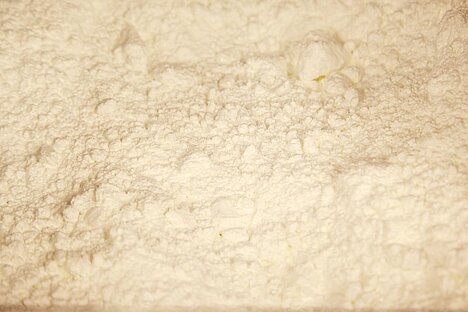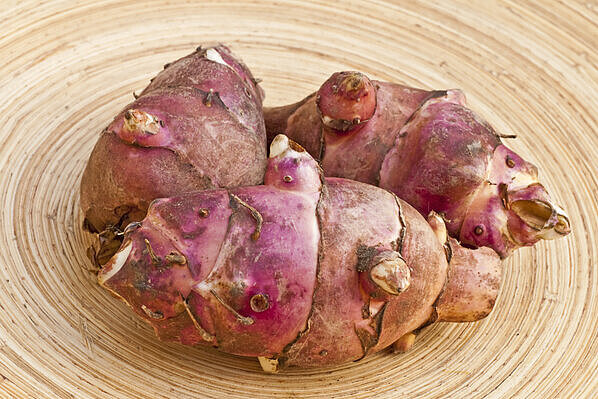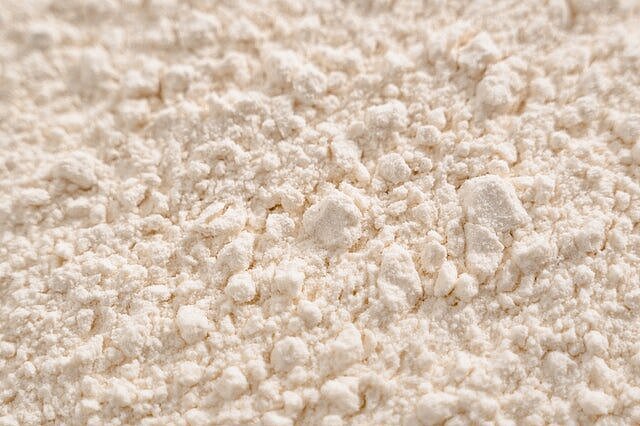Fructooligosaccharides

FOS have a special property: they can hardly be digested by the dog and therefore reach the large intestine relatively unchanged. There they serve as food for the beneficial intestinal bacteria, especially bifidobacteria. These bacteria are important for a healthy intestinal flora and a strong immune system.
Benefits of FOS for dogs
Feeding FOS can have various health benefits for dogs:
- They promote the growth of good gut bacteria and inhibit the growth of harmful bacteria. This reduces the formation of toxins in the intestines and reduces the risk of diarrhea and other digestive disorders.
- They strengthen the intestinal mucosa and protect it from inflammation and infection. This can also have a positive effect on other organs such as the liver or kidneys.
- They support healthy digestion and can help with constipation. As FOS can bind water, they increase stool volume and stimulate bowel movements.
- They can increase the feeling of satiety and thus help with weight control. As FOS contain hardly any calories but can fill the stomach, they reduce the dog's appetite and prevent overeating.
Disadvantages of FOS for dogs
FOS are generally well tolerated by dogs. However, there are some potential disadvantages or side effects that should be considered:
- Excessive amounts of FOS can lead to bloating or abdominal pain. This is because the intestinal bacteria can produce gases when FOS is utilized. To avoid this, the dosage should be increased slowly and should not exceed 5 grams per day. Too much FOS can also impair the absorption of minerals such as calcium or iron. You should therefore make sure your dog has a balanced diet and feed a mineral supplement if necessary.
- Not all dogs react to FOS in the same way. Some dogs may be allergic or sensitive to FOS and show skin rashes, itching or other symptoms. In this case, FOS should be discontinued immediately and a vet consulted.
- The effect of FOS can depend on various factors such as the dog's age, breed or state of health.
Fructooligosaccharides are a natural or artificial source of polysaccharides that can support the intestinal health and immune system of dogs. They have various benefits for digestion, the intestinal mucosa and the dog's weight. However, they can also have some disadvantages or side effects if they are given in too large quantities or if the dog is allergic to them. Therefore, one should always be careful with the dosage and observe how the dog responds to FOS.
Properties 8
Are you looking for other ingredients with a specific property?
Just click on them to find more.
If you notice any signs of hypersensitivity or poisoning in your dog, you should see your vet immediately. We are not a substitute for a vet, but we try to be as accurate as possible. Every dog reacts differently and we recommend you get a second opinion or consult your vet if in doubt.
Stay healthy and take good care of your four-legged friend!😊
Similar to Fructooligosaccharides
Inulin is a carbohydrate that consists of several fructose molecules. It is used by plants as an energy store and is found, for example, in chicory, artichokes, Jerusalem artichokes and dandelions....
Prebiotics are food components that pass through the small intestine undigested and are fermented in the large intestine by the bacteria living there. As a result, they promote the growth and...
Galactooligosaccharides are prebiotic fibers derived from lactose. They consist of short-chain carbohydrates and are known to promote the growth and activity of beneficial intestinal bacteria such...
Xylooligosaccharides are a type of prebiotic derived from the xylan component of plant cell walls. Prebiotics are dietary components that cannot be digested by the host animals, but promote the...



